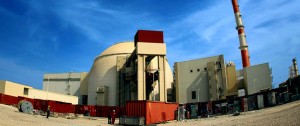 A nuclear deal between Iran and world powers is scheduled to enter into force on January 20.
A nuclear deal between Iran and world powers is scheduled to enter into force on January 20.Iran struck the agreement on November 24 with the so-called P5+1 countries � Britain, China, France, Germany, Russia and the United States.
Details on implementing the deal were agreed on January 13.
It obligates Iran to limit its uranium enrichment program in exchange for the temporary lifting of some international sanctions.
Inspectors from the International Atomic Energy Agency (IAEA) are tasked with making sure Iran is complying with the deal.
On January 19, a spokesman of Iran's nuclear department called limiting uranium enrichment and diluting its stockpile the country's "most important commitments."
Michael Mann, a spokesman for EU foreign policy chief Catherine Ashton, told Radio Farda the EU will be awaiting word on January 20 from the IAEA inspectors.
"All of the things that are linked to the nuclear program that they promised to do in the November 24th agreement, the IAEA is the organization that will verify it. And they will go through all of those points, check that the Iranians have needed to do, and then they will report back to us," Mann explained.
International inspectors have already arrived in Tehran, preparing for the government opening its facilities to them.
The current deal is set to last six months. During that time, Iran and the P5+1 are to continue talks in hopes of reaching a more comprehensive agreement.
Iran denies Western charges it is using its nuclear program to secretly develop nuclear weapons.
Under the interim agreement, Iran must suspend enrichment of uranium to a fissile concentration of 20 percent. That's a short step to the level needed for nuclear weapons.
Tehran also has to dilute or convert its pile of higher-grade uranium, and cease work on the Arak heavy water reactor. Western powers fear Iran could use that reactor to produce plutonium for bombs.
In return, Iran will be able to access $4.2 billion in oil revenues frozen in accounts overseas. It will also be able to trade again in petrochemicals, gold and other precious metals.
By Radio Free Europe/ Radio Liberty
The Iran Project is not responsible for the content of quoted articles.










